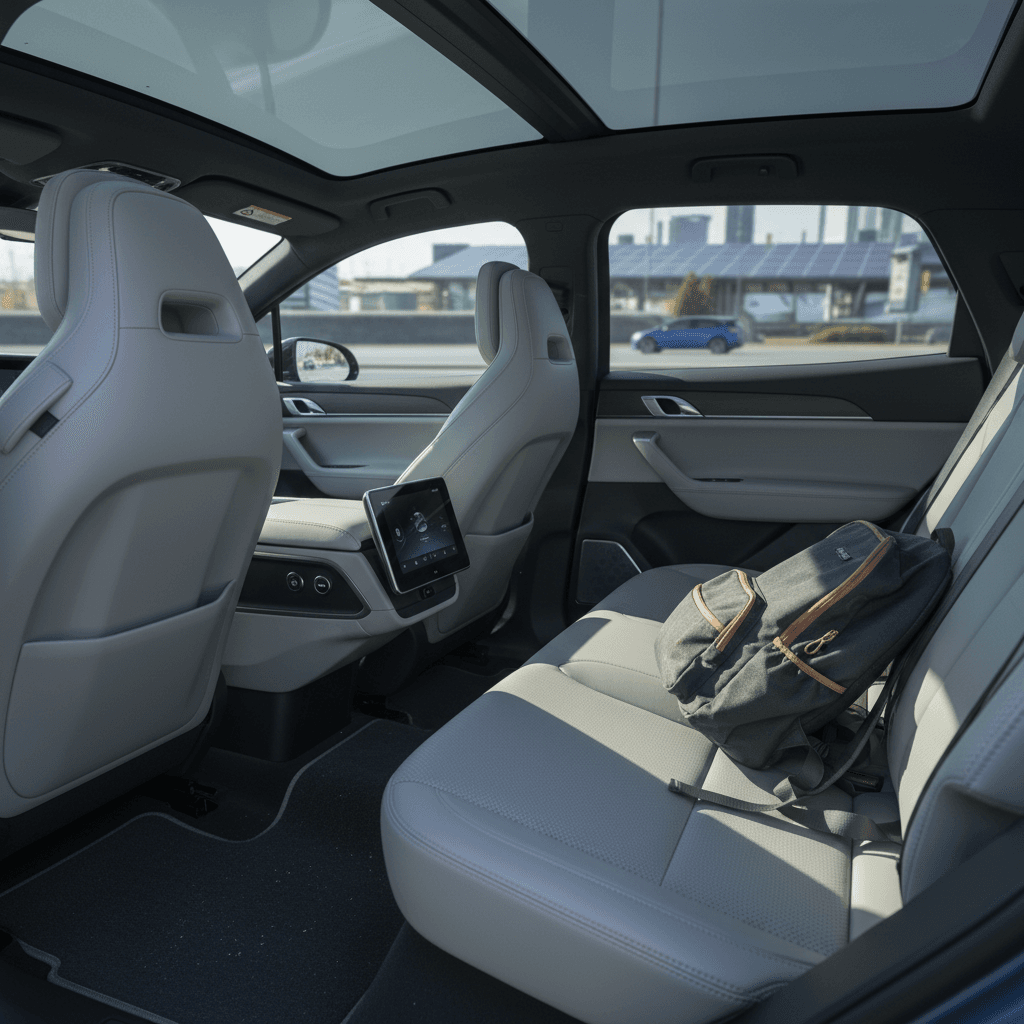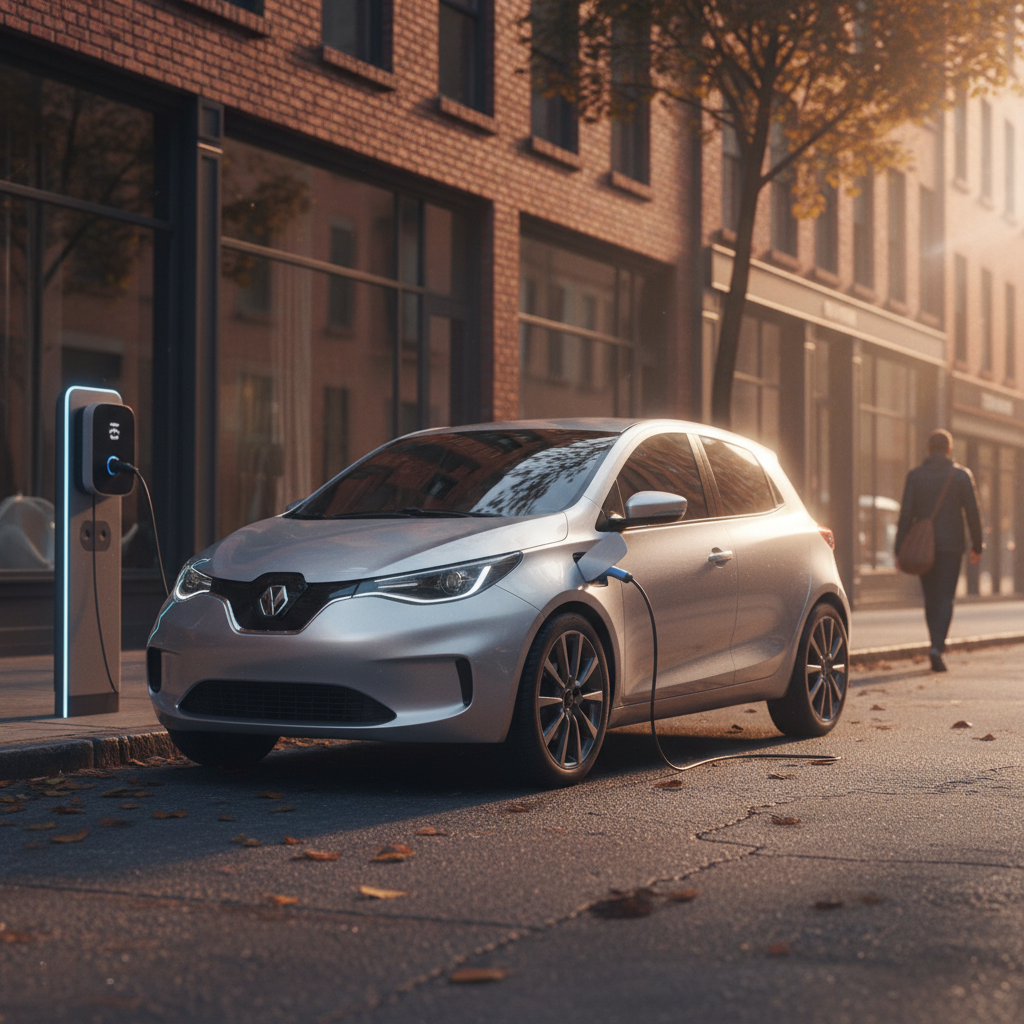If you’re scrolling through listings for a used Tesla Model X for sale, you already know the appeal: seven-seat space, supercar acceleration, and that sci‑fi silhouette with falcon‑wing doors. The trick is separating the hero cars from the headaches, especially now that used Tesla prices have softened and the market is crowded with choices.
The short version
Why a Used Tesla Model X Still Makes Sense
The Model X is an oddball in the best way. It’s a full‑size electric SUV that can outrun sports cars, carry six or seven people, and glide through traffic in near silence. New, it’s expensive, recent pricing for a new Model X base model hovers in the high‑$80,000 range, with Plaid trims well into six figures. Buying used lets you tap into that experience at compact‑SUV money.
How the Used Model X Market Looks in Late 2025
Why now is a good time
What You’ll Pay for a Used Tesla Model X Today
Pricing swings massively with year, mileage, and battery. Early 2016–2017 Model X 75D/90D examples can list in the low‑$20,000s at franchise dealers, while low‑mile 2022–2024 Long Range and Plaid trucks can still push $70,000–$80,000. Trade‑in valuations for high‑mile 2016s can fall into the low‑teens; that’s the bargain basement, but also the riskiest end of the pool.
Beware the too‑cheap X
Budget band: roughly $20k–$35k
- Early 2016–2017 75D/90D with higher mileage.
- Often out of basic warranty, sometimes with patchy service records.
- Best for shorter daily commuting if battery health checks out.
Sweet spot: roughly $35k–$55k
- Later first‑gen and refreshed Long Range models with more modern interiors.
- Better efficiency, updated hardware, and more features.
- Strong value if you need a true family road‑trip machine.
Above that, you get into newer, facelifted Model X Long Range and Plaid territory, fantastic machines, but closer in price to a new Model Y or a well‑equipped German luxury SUV. At those numbers, your decision is more about taste than pure value.
Model X Years, Trims, and Which Ones to Target
The Model X has evolved in quiet, Tesla‑ish increments. Underneath the software updates and wheel designs, you’ll see three broad eras: early 2016–2017 launch vehicles, 2018–2020 mid‑cycle cars with incremental refinements, and the refreshed 2021‑onward models with the yoke‑style steering (later, a round wheel option) and updated interior.
Three Eras of Used Model X
Each era has its charms, and quirks.
2016–2017: Pioneers
These are the experimental years. You get the full weirdo‑spaceship experience, but also the most early‑production gremlins.
- 75D, 90D, P90D, P100D batteries.
- More reports of falcon‑door alignment issues.
- Best bought only with strong records and a verified battery.
2018–2020: Matured
Build quality improves, software matures, and range climbs. These are often the smartest all‑around buys.
- Long Range and Performance trims appear.
- Better efficiency and more real‑world range.
- Many have Autopilot/driver‑assist unlocked.
2021–2024: Refreshed
The heavy facelift: new interior, updated seats, tri‑motor Plaid option, much faster charging and performance.
- Plaid does 0–60 mph in near‑superbike territory.
- Newer packs and electronics age better.
- Expect the highest prices, but also the longest useful life.
Best all‑round bets
Popular Used Model X Trims at a Glance
Use this to decode listings and see what you’re actually getting.
| Trim | Drive | Typical 0–60 mph | EPA Range when new | Who it suits |
|---|---|---|---|---|
| 75D / 90D | Dual motor AWD | 4.8–6.0 s | 220–257 mi | Budget‑focused families, mixed city/highway driving. |
| 100D / Long Range | Dual motor AWD | 4.4–4.7 s | 295–351 mi | Road‑trip families and high‑mileage commuters. |
| Performance / P100D | Dual motor AWD | 2.9–3.5 s | ~289–305 mi | Speed addicts who still need three rows. |
| Plaid | Tri‑motor AWD | ~2.5–2.6 s | ~311–335 mi | The "I want everything" crowd; serious overkill for most. |
Approximate specs; exact numbers vary slightly by model year and wheel choice.
Battery Health, Range and the Recharged Score
With gas SUVs you worry about transmissions and timing chains. With a used Tesla Model X, the conversation begins and ends with the battery. Range isn’t just about EPA stickers; it’s about how the pack has actually lived, fast‑charged every day, or babied on Level 2 at home.

How much degradation is normal?
This is where Recharged leans in. Every vehicle on our platform includes a Recharged Score battery health report, built from on‑board diagnostics and usage data. Instead of guessing from a state‑of‑charge bar, you see an objective view of battery health, projected usable range, and how the pack compares to similar Model X vehicles of the same age.
- Verified pack capacity and estimated remaining range under typical conditions.
- Fast‑charging vs. home‑charging history patterns when available.
- Thermal events or anomalies that might hint at abusive use.
- Side‑by‑side comparison against other Model X vehicles of similar age and mileage.
Simple test drive range check
Common Used Model X Issues to Watch For
The Model X is not a simple machine; it’s an electric cathedral of moving glass and silent torque. That complexity shows up in common used‑car issues. None are automatic deal‑breakers, but they’re reasons to shop carefully and factor in future repair costs.
Four Problem Areas You Should Ask About
Falcon‑wing doors
The party trick and the pain point. Early cars, especially 2016–2017, were known for misalignment, sensor issues, or creaking.
Inspect for smooth operation, even panel gaps, and water leaks around the seals.
HVAC & cabin comfort
Cabin filters, A/C compressors, and the occasional noisy fan can crop up with age, particularly in high‑mileage cars.
Check for strong, even airflow and any odd smells or noises when climate control ramps up.
Suspension & tires
The X is heavy and often runs big wheels; that’s hard on control arms and tires.
Look for uneven tire wear, clunks over bumps, and any warning lights related to air suspension.
Electronics & sensors
Cameras, ultrasonic sensors, and the main MCU screen can develop glitches over time.
Scroll through menus, test every camera view, and confirm that Autopilot/driver‑assist behaves predictably.
Avoid cars with persistent door faults
Features That Still Feel Special on a Used Model X
The most surprising thing about a well‑kept used Model X is how modern it still feels. Tesla’s approach, big screen, few buttons, constant software updates, has aged better than many contemporary luxury SUVs with forests of switches that now look like early‑2000s stereo equipment.

- Instant torque. Even non‑Performance trims leap forward in a way most gas SUVs can’t match.
- One‑pedal driving. Regenerative braking makes stop‑and‑go traffic surprisingly calm and efficient.
- Over‑the‑air updates. Many used cars have picked up new features, UI tweaks, and efficiency improvements over the years.
- Supercharger access. For road trips, the integrated routing and fast‑charge network are still a huge advantage.
Why families love it
Used Model X vs Other Electric SUVs
If you’re shopping for a used Tesla Model X for sale, you’re probably also peeking at big crossovers like the Model Y, Kia EV9, Mercedes EQE SUV, or even plug‑in hybrids. Here’s how the X stacks up in broad strokes.
Used Model X vs Popular Alternatives
High‑level comparison for shoppers cross‑shopping electric family haulers.
| Vehicle | Drivetrain | Seats | Character | Best if you… |
|---|---|---|---|---|
| Tesla Model X (used) | All‑electric AWD | 6–7 | Fast, dramatic, tech‑forward, huge Supercharger network. | Want a do‑everything electric family rocket with real road‑trip chops. |
| Tesla Model Y (used) | All‑electric RWD/AWD | 5–7 | Smaller, more efficient, less theatrical. | Don’t truly need the space or drama; want simpler daily use. |
| Kia EV9 (used/new) | All‑electric RWD/AWD | 6–7 | Comfort‑oriented, feature‑rich, traditional SUV shape. | Prioritize warranty and dealer network, and prefer a more conventional feel. |
| Mercedes EQE SUV (used/new) | All‑electric AWD | 5 | Luxury‑first, quieter ride, smaller inside. | Want traditional luxury cues more than maximum space and range. |
Exact pricing varies by year and mileage, but the character of each vehicle is consistent.
Inspection Checklist for Any Used Tesla Model X for Sale
Before you fall in love with the doors or the launch control, slow down and work through a systematic inspection. Even if you’re buying online, you can ask the seller specific questions or request photos and videos that align with this list.
10 Checks Before You Commit
1. Pull a detailed vehicle history
Check for accidents, flood damage, title issues, and odometer discrepancies. A clean history doesn’t guarantee a perfect car, but a messy one almost always guarantees headaches.
2. Confirm battery health independently
Don’t rely only on the dash estimate. Ask for a third‑party battery report, or, on Recharged, review the <strong>Recharged Score</strong> for objective pack health and projected range.
3. Inspect falcon‑wing doors in slow motion
Open and close each door multiple times on level ground and an incline. Listen for grinding, watch for uneven movement, leaks, or warning messages.
4. Test front doors and handles
Auto‑presenting handles and power latches should work smoothly. Glitches here can be early warning signs of broader door electronics issues.
5. Evaluate tires and wheels
Uneven wear or budget tires on 22‑inch wheels can hint at past curb damage or neglected alignment. Factor the cost of a full set of quality tires into your budget.
6. Drive at highway speed
On‑ramp acceleration is fun, but you also want to feel how the car tracks at 65–75 mph. Listen for wind noise around the windshield and mirrors, and any vibration from wheels or drivetrain.
7. Stress‑test the suspension
Find a rough road and drive it at moderate speed. Clunks, squeaks, or floaty responses suggest control‑arm or air‑suspension work in your future.
8. Check every camera and sensor
Toggle rear, side, and front cameras; test parking sensors and any Autopilot features the car has. Glitches now can be expensive later.
9. Confirm included charging equipment
Many used Teslas are sold without the mobile connector or adapters. Replacing them isn’t cheap; budget for this or negotiate accordingly.
10. Review software and feature ownership
Verify which software features (like Enhanced Autopilot or Full Self‑Driving) are tied to the car and will transfer with the sale, not just to the current owner’s account.
Digital buying made safer
Financing, Warranty and Total Cost of Ownership
A used Model X costs more up front than a typical gas crossover, but it pays some of that back quietly over years of lower fuel and maintenance bills. The key is structuring the purchase correctly so you’re not payment‑heavy and savings‑light.
Running costs
- Electricity vs. gas: Even at average U.S. rates, fueling a Model X at home generally undercuts filling a comparable gas SUV by a healthy margin.
- Maintenance: No oil changes, fewer moving parts, but budget for tires and eventual suspension work.
- Insurance: Can be higher than average; shop multiple quotes before you buy.
Financing & protection
- EV‑friendly lenders: Some lenders now price loans specifically with EV residual values in mind.
- Extended coverage: Consider warranties that cover battery, drivetrain, and high‑voltage components past the original term.
- Recharged support: You can finance your used Model X through Recharged, roll in protection plans, and arrange nationwide delivery from one dashboard.
Pre‑qualify without dinging your credit
Used Tesla Model X FAQ
Frequently Asked Questions About Buying a Used Model X
Final Thoughts: Is a Used Tesla Model X Right for You?
A used Tesla Model X is not a quiet, sensible choice, it’s a statement. It says you want minivan practicality without minivan shame, massive performance without tailpipes, and a cabin that still feels like the near future. It also says you’re willing to live with some complexity: fancy doors, lots of software, and the realities of a large aging battery.
If you can embrace that trade‑off, focus on the right years and trims, and insist on a clear view of battery health, a used Model X can be a fantastic long‑term companion. Buying through Recharged adds a layer of calm: you get a Recharged Score battery report, fair‑market pricing, EV‑savvy guidance, and the option to handle everything, financing, trade‑in, paperwork, from your couch.
So if those falcon‑wing doors still make your inner 10‑year‑old grin, you’re not wrong. Just bring grown‑up due diligence to the search, and that wild electric spaceship in your bookmarks can become the most useful car you’ve ever owned.



